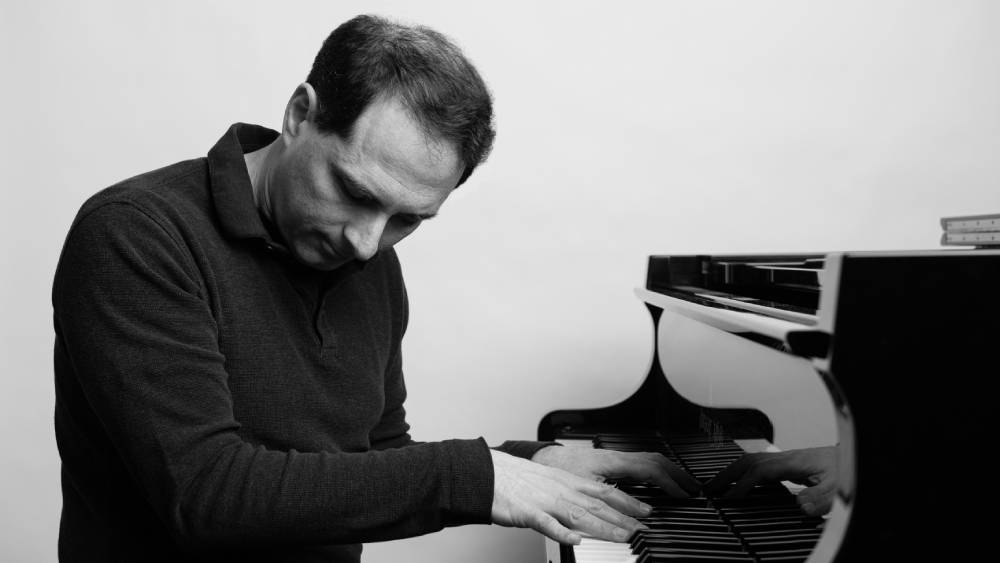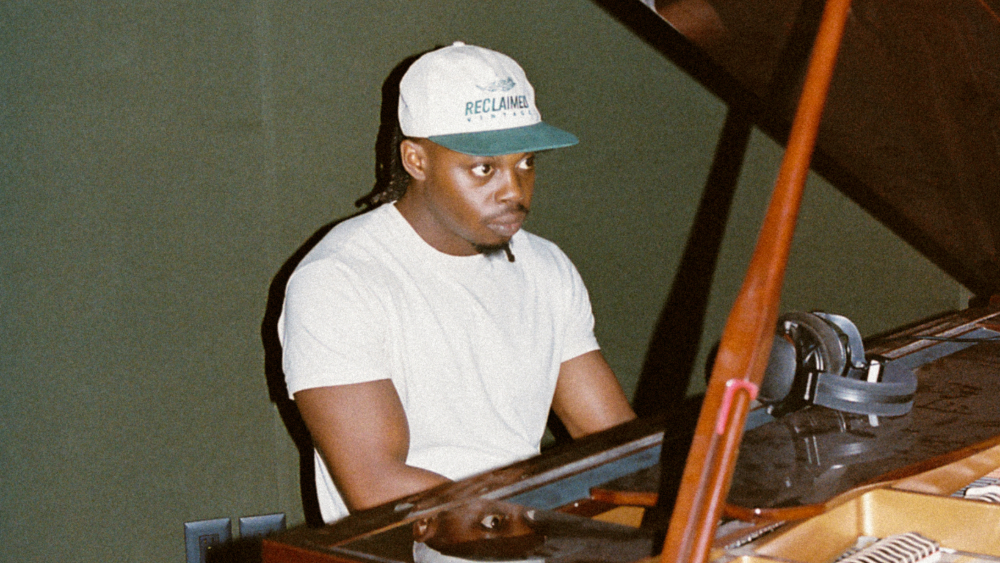‘I received a phone call from Ridley Scott asking me — well, actually, telling me that I’d want to do this,' Harry Gregson-Williams tells M about the moment he found out he would be composing the score for Gladiator II. 'He was right, of course: I wanted to do it.'
Nearly 25 years on from Ridley's original Gladiator film, its long-awaited sequel finally hit cinemas last month. A similarly epic and ambitious prospect on the big screen, the British-born, LA-based Harry sensed an opportunity to deliver a score for the ages — even if he did feel some apprehension about the task which lay ahead.
'With Ridley's films, there's usually a large canvas to work with,' he explains. 'Obviously, I know the original Gladiator film and Hans Zimmer’s much-loved score, so I knew I was in deep trouble then! I called Hans and asked him what he thought about this assignment, and he said, “Rather you than me! But no, you're gonna make me proud.”’
Marking the seventh collaboration between Harry and Ridley — following on from the former composing the music for the likes of The Martian, House of Gucci and Alien: Covenant — the composer sat down with M to discuss how he approached writing the score for the Paul Mescal and Denzel Washington-starring epic, why music is so crucial to film and his top tips for budding media composers.
How did you approach the task of following Hans Zimmer's original Gladiator score?
‘When I set sail to do the movie, one of the first conundrums was whether I should use some of what Hans had done in the first movie and, if so, where I would use it in the new film. But following discussions with Ridley it was clear that we didn't want to overdo that, so instead we picked a couple of moments from Hans' main theme.
‘The way I work, the first thing I did was re-listen to Hans's Gladiator score, and the main theme is the thing that sticks out to everybody. When you examine that, he uses and repeats this descending 7th. I thought, “Well, why don't I make that part of this new theme for this new character, Lucius?” One of the first pieces I wrote, Strength and Honour, is just based off this descending 7th, and I wanted to see how far I could take it. There’s a moment late in the script where Lucius “becomes” Maximus, so I thought, “If I'm using this descending 7th within Lucius' new theme, maybe I can make it make sense for Lucius' theme to then become Maximus' theme, like it said in the script”. So that was the concept behind that.’
Gladiator II is your seventh film with Ridley. What’s the secret to your successful creative partnership?
‘I'm grateful for [the partnership], but I'm also mindful that he's commissioned different composers for his films: he's had Vangelis, Jerry Goldsmith [and] James Horner. He had Martin Phipps, a very good English composer, do Napoleon, while Daniel Pemberton has also done a couple of his movies really well. So I think Ridley knows who he wants to do [certain projects]. I would [therefore] never count my chickens before they've hatched, and I know that I'm lucky to get the call when I get the call.
‘At the beginning of a Ridley assignment, I usually go and meet him first. This time he was in his house in France, and it’s always fascinating to see him in his environment there. By that point Gladiator II had already been partially made, but as there's quite a few visual effects in this film it was still pretty [unfinished]. It was therefore a work-in-progress project, so we began to work in parallel: as he continued developing the film, I developed the soundtrack.
‘I feel good about the film we've made, and I hope we made the right choices. There are a couple of moments in Gladiator II where we hark back to the spiritual essence of the first film, and there are a couple of moments within the score where I definitely sock you with Hans' main theme from the first movie. That was pretty pleasurable. That was fun to do.’
'There are a couple of moments within the Gladiator II score where I definitely sock you with Hans Zimmer's main theme from the first movie — that was fun to do.'
Why is music so crucial to cinema?
‘Different filmmakers use different music to help tell the story they're trying to tell, so music might become part of, for example, an emotional character arc. [Film] music can often be subversive as well. As composers, we don't necessarily have to be channelling exactly what we see on screen. Instead, we can bring some emotional characteristic that isn't evident immediately to the audience.
‘Tony Scott and I developed a quite kinetic style — which wasn't to everybody's taste! — but it was certainly fun as a composer to develop that over the course of many, many films and many years with Tony. Ridley is more esoteric: he's not so concerned with the music crashing into the front of a cut. He's more interested in the overall effect of what the music is doing.’
How much consideration do you give to how people will watch movies — such as in the cinema or at home — when composing a score?
‘Good question. Hopefully, most people will consume Gladiator II by going to the cinema. For a movie like this, we're [specifically] mixing it for the big screen and for a big sound system.
‘I remember, though, a huge disappointment in that department in 2020. We were days away from the cinematic release of Mulan, which we absolutely made for the cinema sonically and as a spectacle. I remember taking my children to a special screening in LA and the director got up on stage at the end to say, “You’re a special audience, because you're probably the only audience who are ever going to see this movie in the cinema”. We were like, “What?! This is a huge Disney cinematic release”. Two or three days later, the first COVID lockdowns begun, and Mulan ended up going straight to Disney+. I’ve never watched that movie on my phone, but we sure as hell didn’t mix it to be consumed through laptop speakers — but that’s how so many people ended up seeing it.’
When did you first join PRS?
‘A long time ago! I was assisting composer Richard Harvey at the now-defunct Snake Ranch Studios in Chelsea, and I remember, after collecting the mail once, there was a big fat envelope with Richard's name on it. I popped it on the desk next to him, to which he said, "Oh, that's my PRS statement." I replied, "What the hell's that?" He said, "Well, you'll find out."
‘That was probably in about 1990, and I was very lucky that he then included me on his cue sheet a couple of times with some small things that I did. A year or two passed, and I got a very thin envelope from PRS — but it was an envelope nonetheless! These are things that we're very lucky to be a part of, and I've been with PRS ever since.’
How do royalties support the work of film composers?
‘Royalties support music creators through and through. I remember with some of the first royalties I ever earned, which would’ve been quite a humble amount, I was able to buy my first Roland S-760. This was after I'd just met Hans Zimmer for the first time in London, and he had a whole rack of the damn things! But I think they cost about £3,000 or something like that — money I did not have. But I remember being able to invest in my first few bits of gear purely due to having joined PRS and got a little bit of a royalty stream started.’
‘Royalties support music creators through and through.'
What are your three top tips for emerging film and TV composers who want to take the next step forward in their career?
‘Firstly, get yourself a really good, solid education in music. I know that sounds a little obvious, but you'd be surprised at the amount of people who try to bypass that. It doesn't necessarily have to be in music theory, either — especially if that's not your thing.
‘Secondly, find yourself a busy, charismatic, ambitious person to assist — there's no point in assisting someone who only works twice a year! The busier someone is, the more they’re going to need you. I was lucky enough to find that in Hans Zimmer: he was asked to do so many things and he was flourishing at that moment, so, of course, crumbs might fall from the table. There’s no better way of learning than on the job. I remember when I first arrived in LA, I’d never used a computer — I never owned a computer, let alone used a computer in music before. But I was very quickly told by Hans if I wanted to assist him, then I had to learn how to sequence music using Cubase [software].
‘My third piece of advice would be to not give up if you're pushed back at first. Often there are obstacles on the path that you want to take, so you’ve got to beat a hasty retreat and find another way to go. But you do get pushed back quite a bit as a film composer — your music won't be to everybody's taste. You get asked to redo things, rewrite things, arrange things. But that's kind of the final job, because by the time all is done, we're just really trying to make music that will work within a film and bring something to a story. That’s pretty thrilling.’
Gladiator II is in cinemas now.





